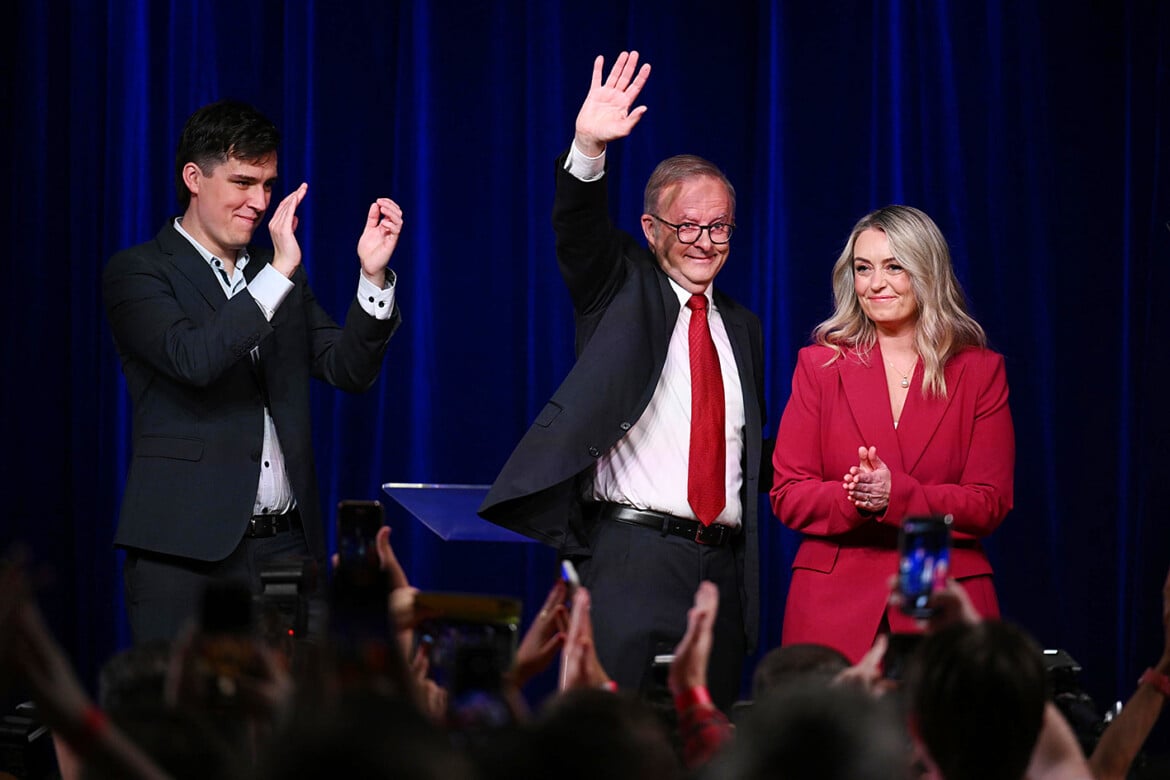Analysis
The Trump effect: Labor surges to victory in Australia with progressive agenda
Canada’s vote a few days ago gave the first hints, now confirmed in Australia too: voters are rewarding those who stand up to Trump’s trade bullying.

Peter Dutton first won the Brisbane seat of Dickson in the Australian Parliament back in 2001. Now, 24 years later, he lost it.
The last time an opposition leader lost his seat on election night was 125 years ago, and on Saturday, May 3, history repeated itself. The vote turned out to be a historic humiliation for the Liberal Party and its candidate for prime minister. By contrast, Labor’s Anthony Albanese scored an unexpectedly large victory, becoming the first Australian prime minister in 20 years to win a second term.
The Donald Trump effect has swept away many long-standing records – and, in passing, has also swept aside the candidates viewed as closest to the White House. Canada’s vote a few days ago gave the first hints, now confirmed in Australia too: voters are rewarding those who stand up to Trump’s trade bullying.
The predictions were of a razor-thin finish, and Labor was already preparing to bargain with independents for the 76 seats needed to govern. Instead, after a few hours of counting, the centre-left surged to 86: more than enough to govern alone. A visibly moved Albanese promised to “govern for all Australians.” He spoke of fair work, fair wages and everyone’s right to switch off at the end of the day, pledged decisive action on climate and renewable energy, and highlighted his flagship healthcare plan.
This is a very progressive agenda, and no wonder: when he was only 12 years old, Albanese was already taking to the streets to protest the sale of the public housing units where he lived with his mother in the Sydney suburbs. But the premier will also need to outline a new path forward for the First Nations, after the referendum he sponsored on parliamentary representation for indigenous peoples, which failed at the ballot box. He further underlined the immeasurable distance between his own policies and Trump’s by adding that his cabinet would “choose the Australian way, because we are proud of who we are … We do not need to beg or borrow or copy from anywhere else.”
By contrast, one cannot fail to give some credence to the accusations that the defeated center-right was largely inspired by the MAGA platform during the campaign. Dutton, dubbed “Temu Trump” by rivals, as if he were a low-budget version of the U.S. president, was aiming for a sweeping reorganization of the federal bureaucracy, with cuts in public hiring and a streamlining of the state apparatus that seemed borrowed straight from Elon Musk’s playbook. The liberals tried to correct course during the campaign, when they realized that the Liberation Day tariffs were beginning to shift the polls that had previously been in their favor. But it was too late: even Dutton himself lost his historic seat, won by a Labor star, Ali France, a Paralympic champion who lost her 19-year-old son to leukemia a few months ago.
Even their rush to build a presence on the Chinese-language apps (which the Liberals had previously wanted to ban) was not enough to win the votes of the community of Asian origin. As former Labor minister Bill Shorten noted, many Australians had grown uncomfortable with U.S. policies just as the Liberals were adopting MAGA tones.
Albanese, the son of an Australian mother and an Italian father whom he believed dead until the age of 14, hammered home two key topics: stability and autonomy. Stability, he said, flows from continuity in government action, while autonomy must be pursued in both trade policies and diplomacy. He has already implemented this agenda, in part, in recent years: while he kept the AUKUS pact with the United States and the United Kingdom for nuclear-powered submarines in the Pacific, he also mended the country’s tattered relations with China. After a meeting with Xi Jinping, Canberra managed to put an end to a long and painful years-long trade war with Beijing. Now the prime minister will have to find a delicate balance towards Trump, whose protectionism could seriously hurt the Australian economy.
On Saturday, Singapore also went to the polls in the first test for Prime Minister Lawrence Wong, who succeeded Lee Hsien Loong last year after decades of dominance by the Lee family. Wong’s People’s Action Party was on track for eighty-seven of ninety-seven seats, an unexpectedly massive victory that began to take shape after the premier broke with Singapore’s customary diplomatic caution and sharply criticised Trump’s tariffs.
Originally published at https://ilmanifesto.it/effetto-trump-albanese-stende-la-destra-in-australia on 2025-05-04
